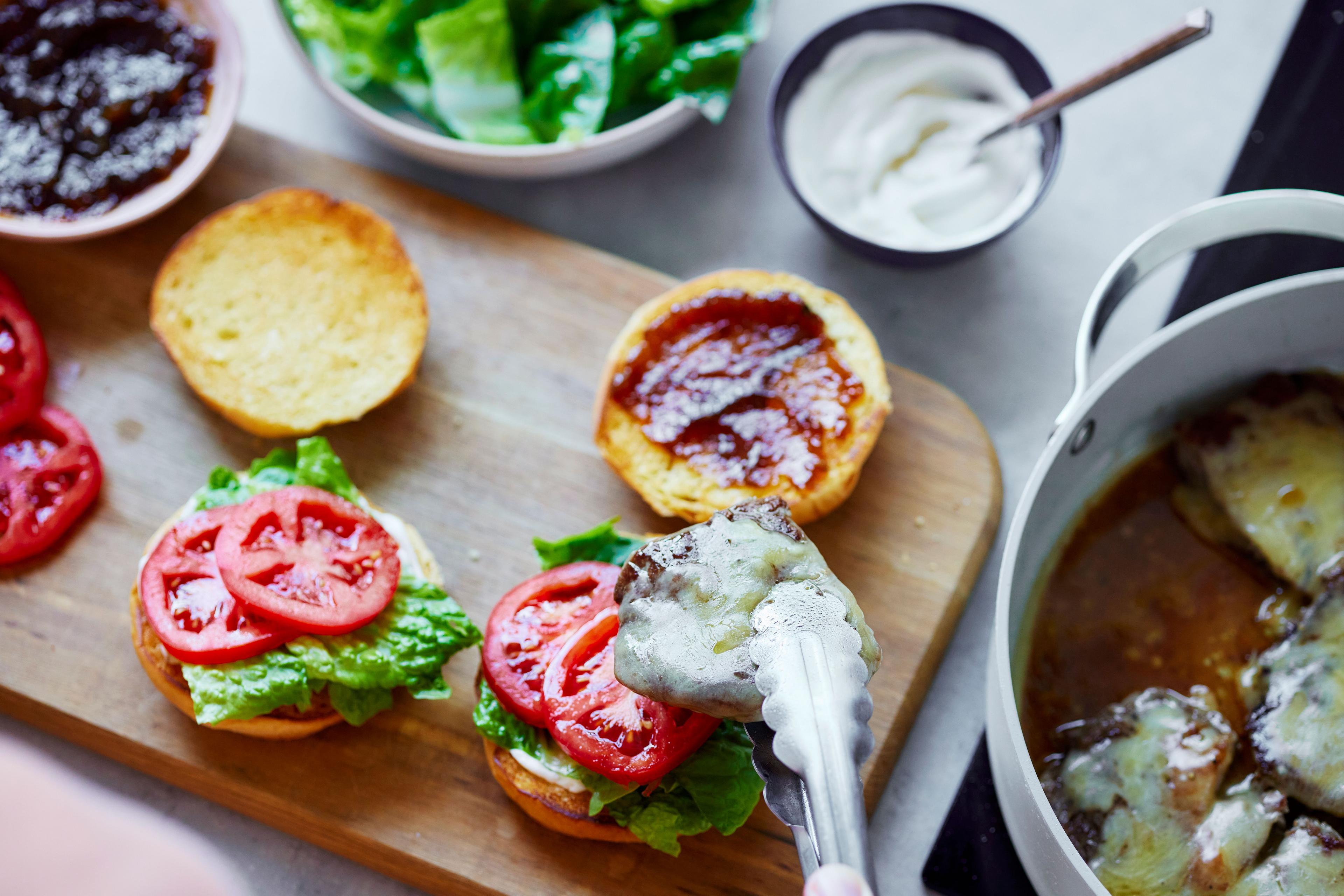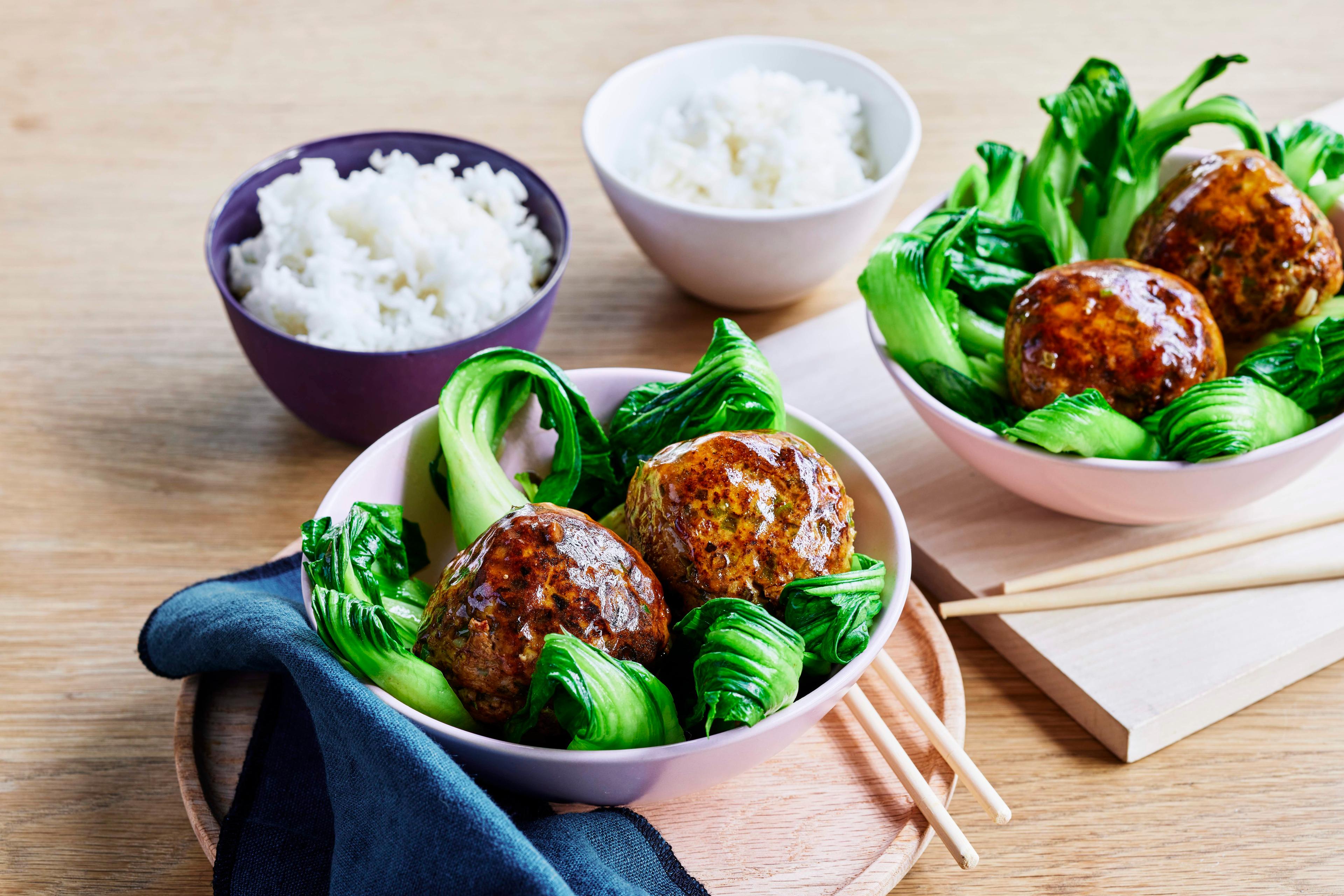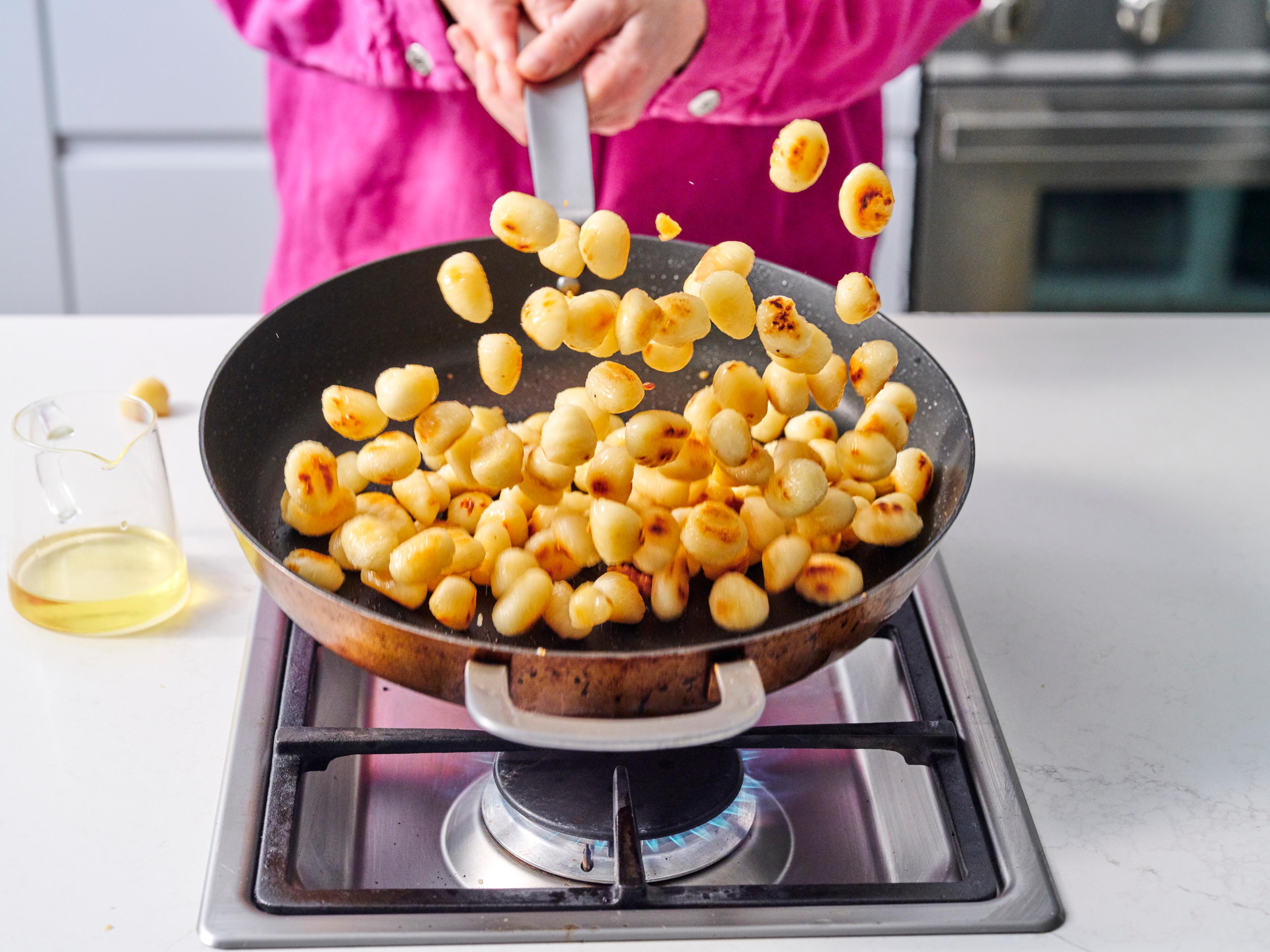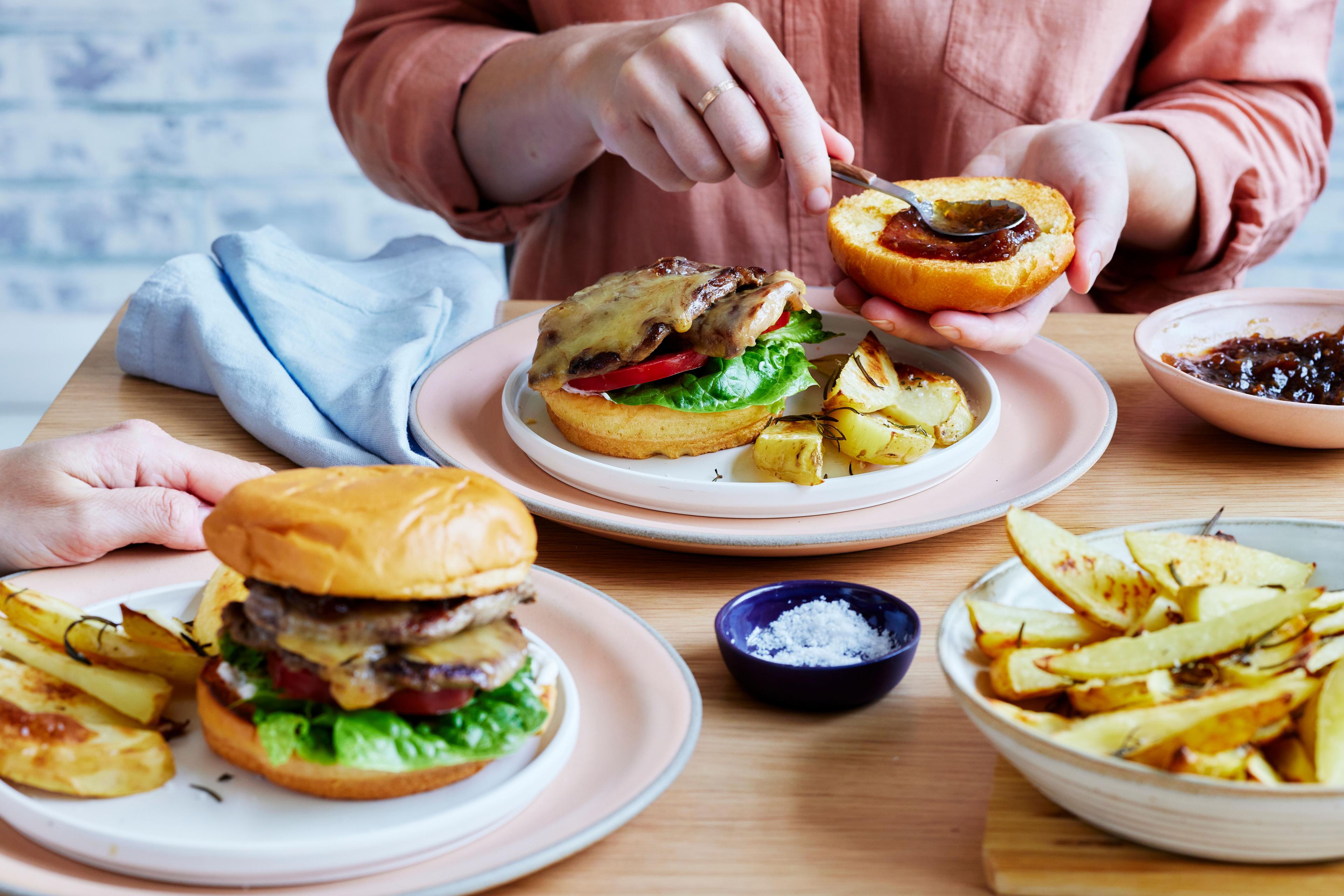
School holidays are the best time to hook-up with a family cook-up!
Here come the school holidays (again?!) and while we love those little guys, there is a limit to how long one can tolerate an indoor trampoline centre or diligently tidy up the aftermath of an enthusiastic craft session.
So, what’s a parent to do when the inevitable “I’m bored” wail kicks up? Our advice? Get them in the kitchen. Cooking is so fantastic for kids, it’s a life skill they’re never too young to start loving and it’s actually a really nice way to spend time together.
We’re not saying it won’t be frustrating. But if you can loosen your grip on the need for uniformly diced ingredients and a spotless kitchen bench, then you’ll both get a lot out of the experience.
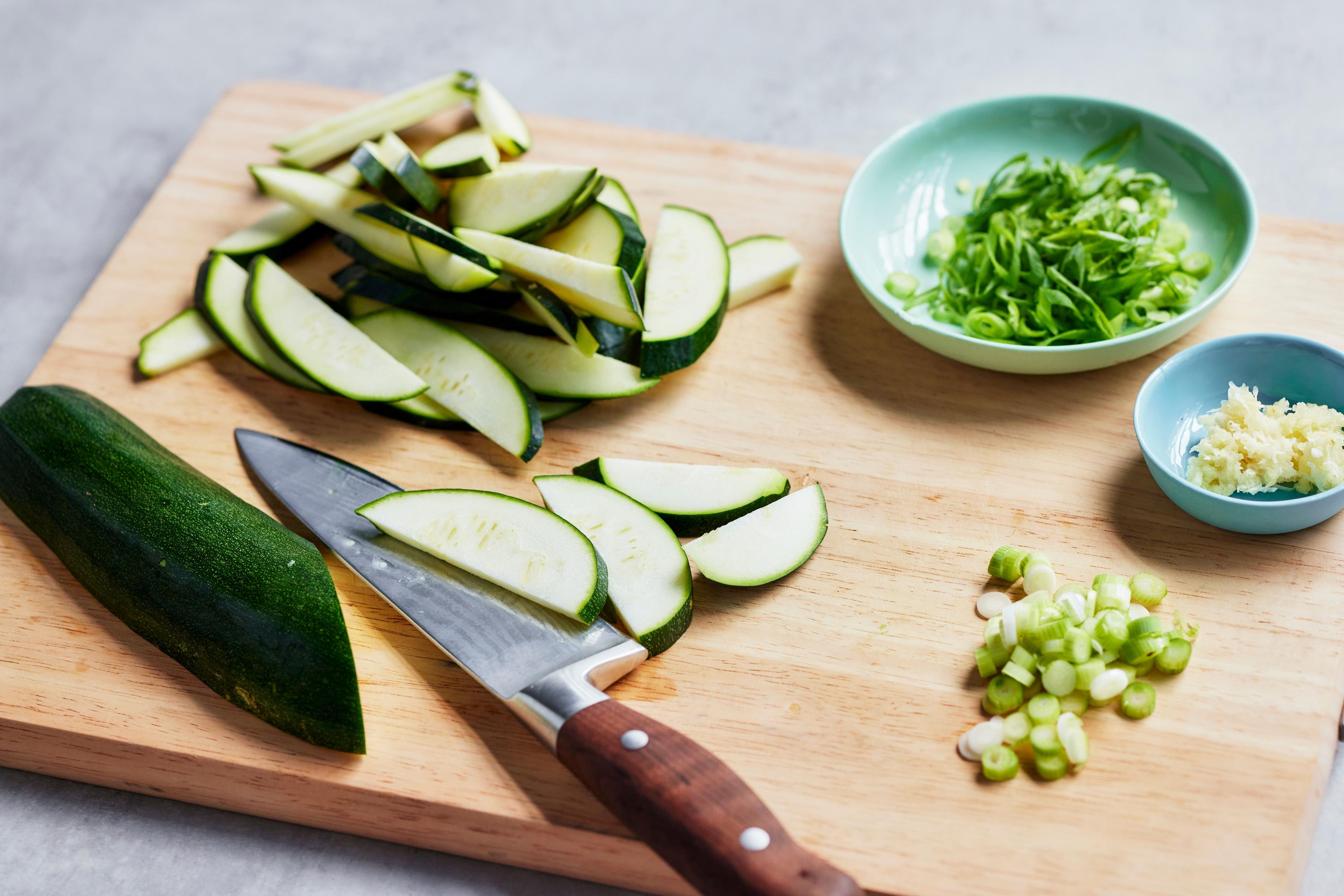
Life skills and knife skills
Allowing kids to get handsy with their food will help them appreciate where it comes from. Start a discussion around how vegetables grow, how they get to the store, and how to tell if something is fresh. For older kids, supervise them as they chop and slice. The more they practice with a knife, the better they’ll get and not only will they take confidence away from this experience, but you’ll know they understand the basics should they attempt solo cooking in the future.
Nutrition cognition
When you cook with your children you create a relaxed environment where they’re open to listening. Rather than demanding they eat their vegetables as you try to convince them to finish their dinner, when you casually cook together, you can naturally veer into talking about which foods help their bodies to grow. Giving them the basics in healthy eating will empower them to make better choices for themselves as they grow.
Create food lovers, not haters
Encouraging kids to taste ingredients as you cook also helps to broaden their palate. While they may not love broccoli when it magically appears in their bowl, if they’ve washed it, tried it raw and added it to the pan, they’re more inclined to taste the results of their hard work. You probably won’t convert them into advocates for Brussels sprouts, but the more they try, the larger their food world becomes.
Cooking comprehension
Following a recipe together is an opportunity to broaden little ones’ vocabulary and introduce mathematical concepts, such as measuring. For older kids who can read the recipes, they’ll also pick up necessary life skills, such as following steps and processes.
Not to mention, you’ve had help with dinner. So, win! And once they serve up their creations, they’ll feel a swell of pride and accomplishment, which will hopefully encourage them to cook again.
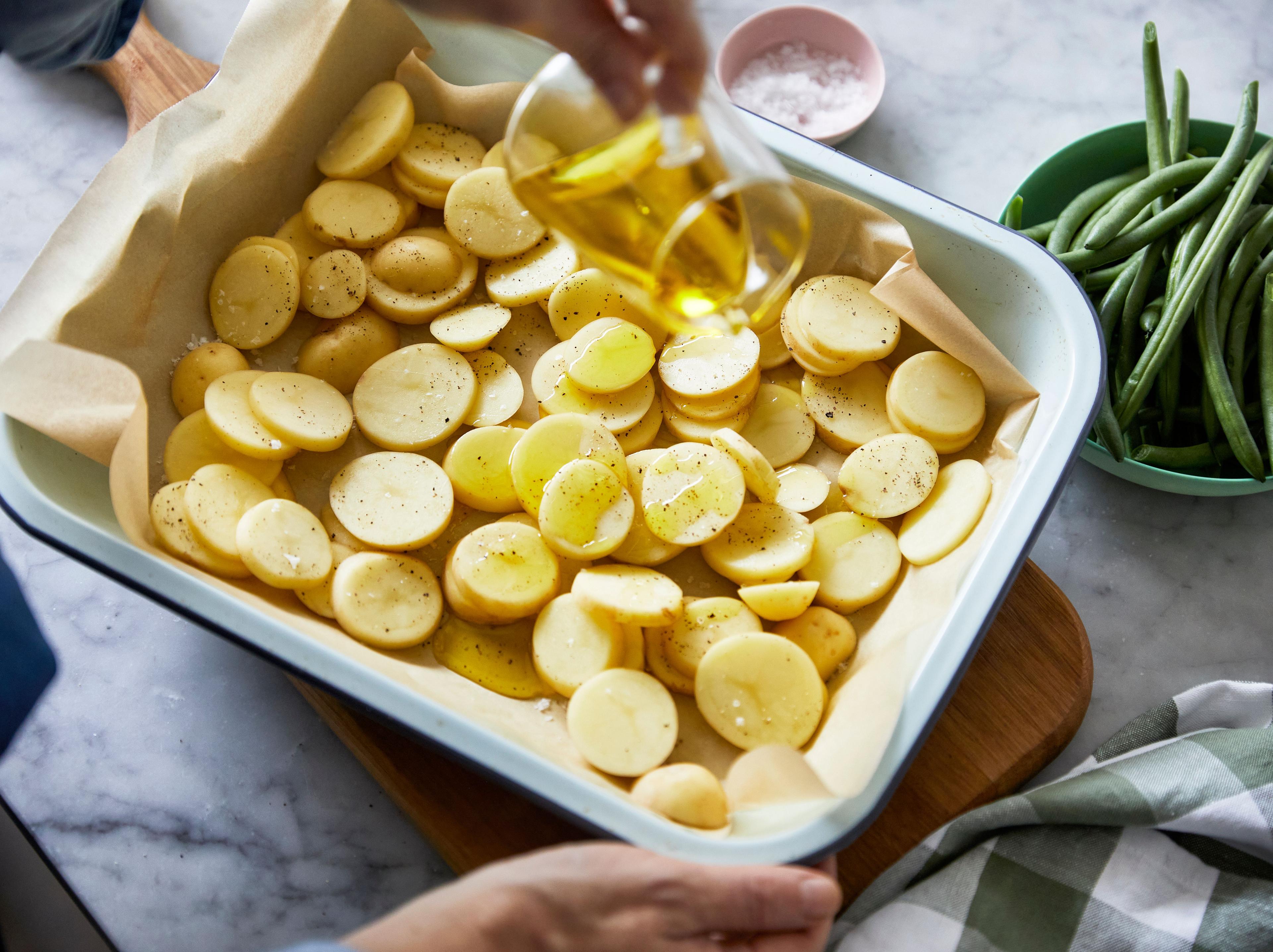
Not sure where to start?
No worries, we’ve curated a bunch of recipes that lend themselves perfectly to budding chefs with tips on how the kids can’t get involved. That means less stress for you as the activity director and more warm-fuzzy moments with your little loves. Check them out below:
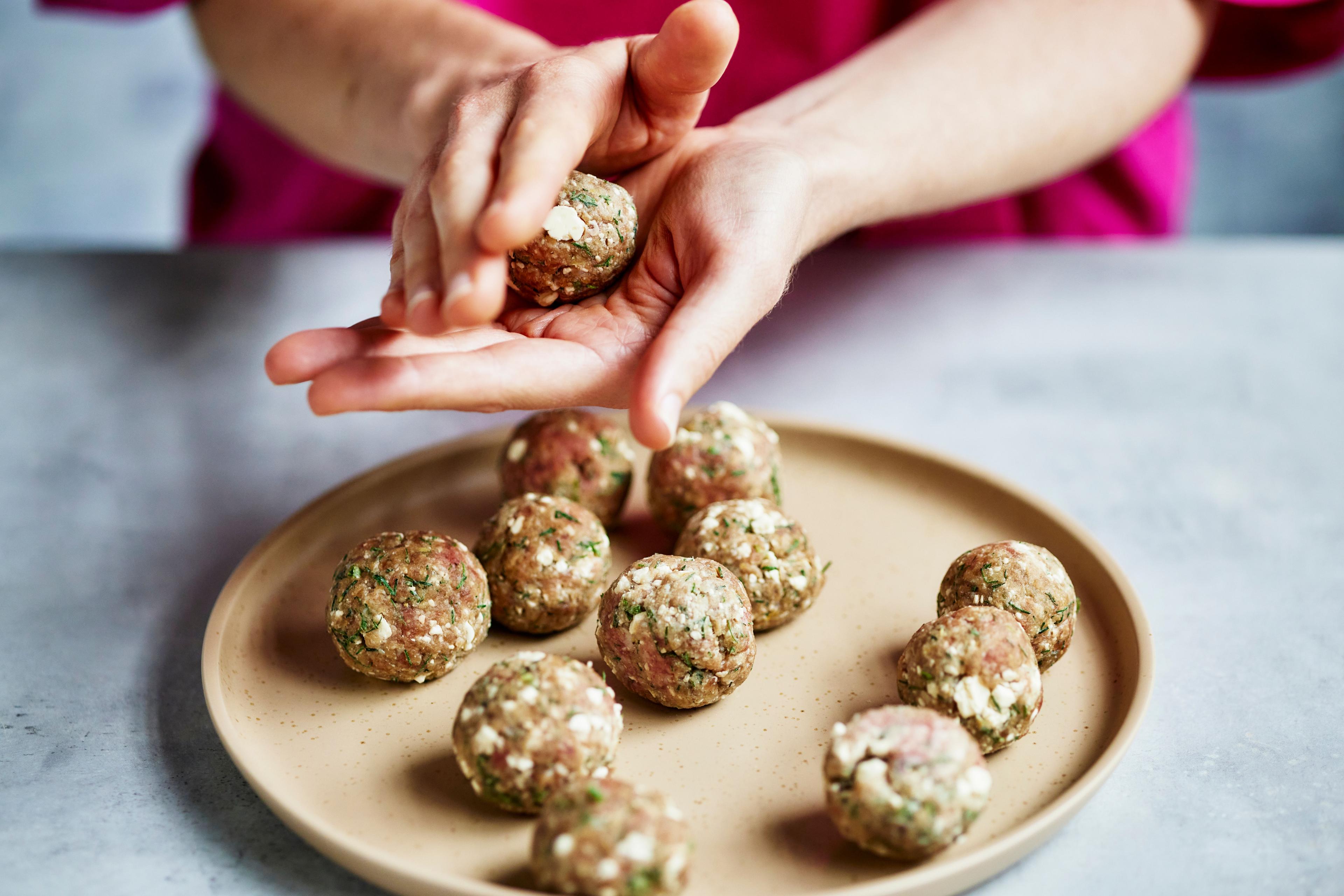
One-Pan Greek Lamb Meatball and Risoni Bake
Suits: all ages
How they can helps: roll mince mixture into meatballs.
Mexican Chicken Pie
Suits: all ages
How they can help: Lots of fun to be had with this one especially the filo pastry top!
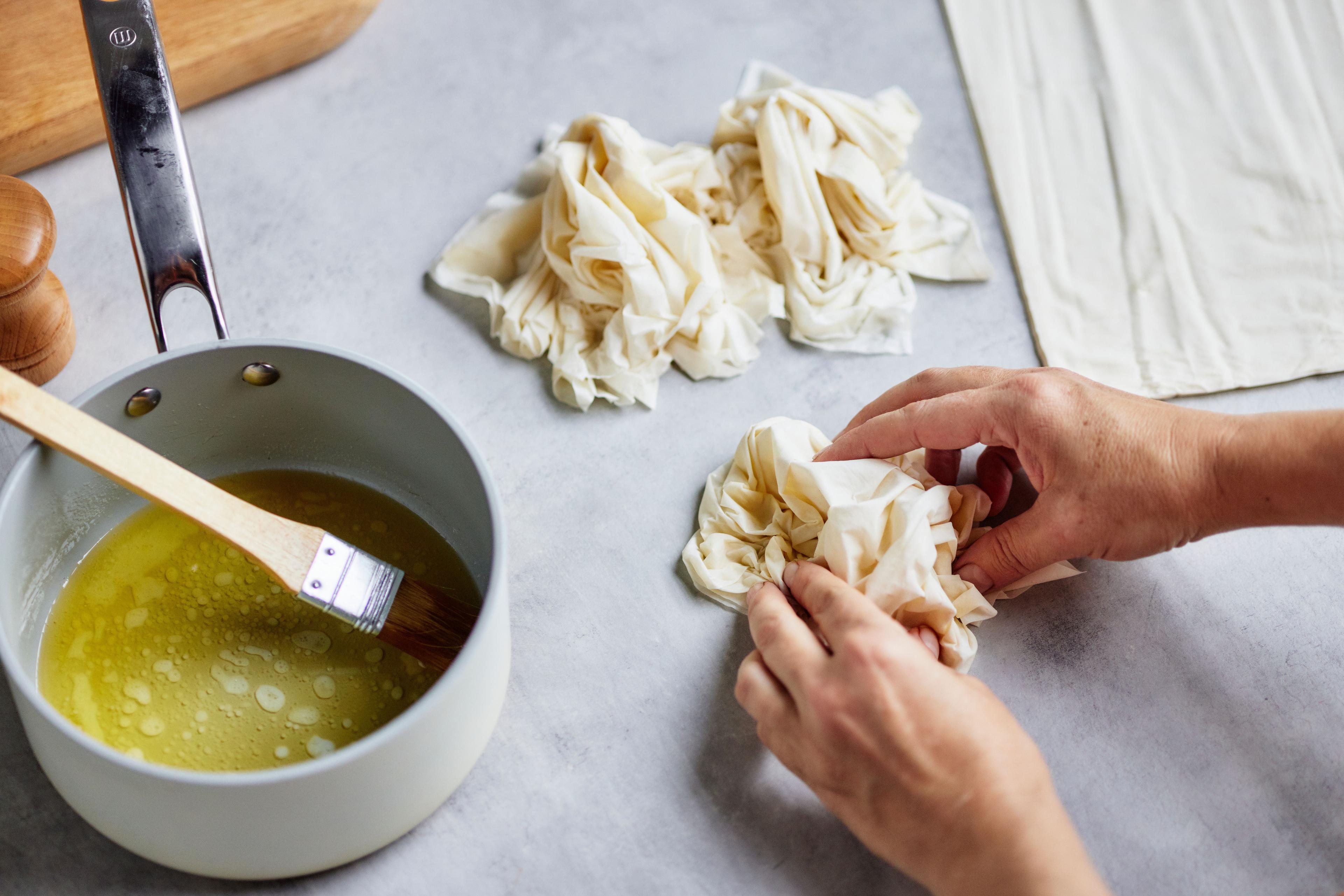
Beef Yaki Udon
Suits: all ages
How they can help: older children can pour boiling water from kettle over noodles, help with vegetable prep, and even assist cooking the stir-fry! Younger children can be supervised with vegetable prep and tossing ingredients in the pan.
Honey Mustard Roast Chicken
Suits: all ages
How they can help: mixing the marinade and spreading ingredients on the tray. Older children can help slice potatoes, trim beans and use the oven wearing gloves under supervision.

Chicken Kiev Schnitzels with Lemony Broccolini
Suits: all ages
How they can help: Making the garlic butter by mashing the butter and herbs together. Older children can trim broccolini and cook schnitzels, (supervised ofcourse!).
Classic Steak Burgers with Rosemary Chips
Suits: all ages
How they can help: older children can chop chips, and cook the steaks. Younger kids can pick rosemary leaves from stems, rinse lettuce and toast buns in a toaster.
